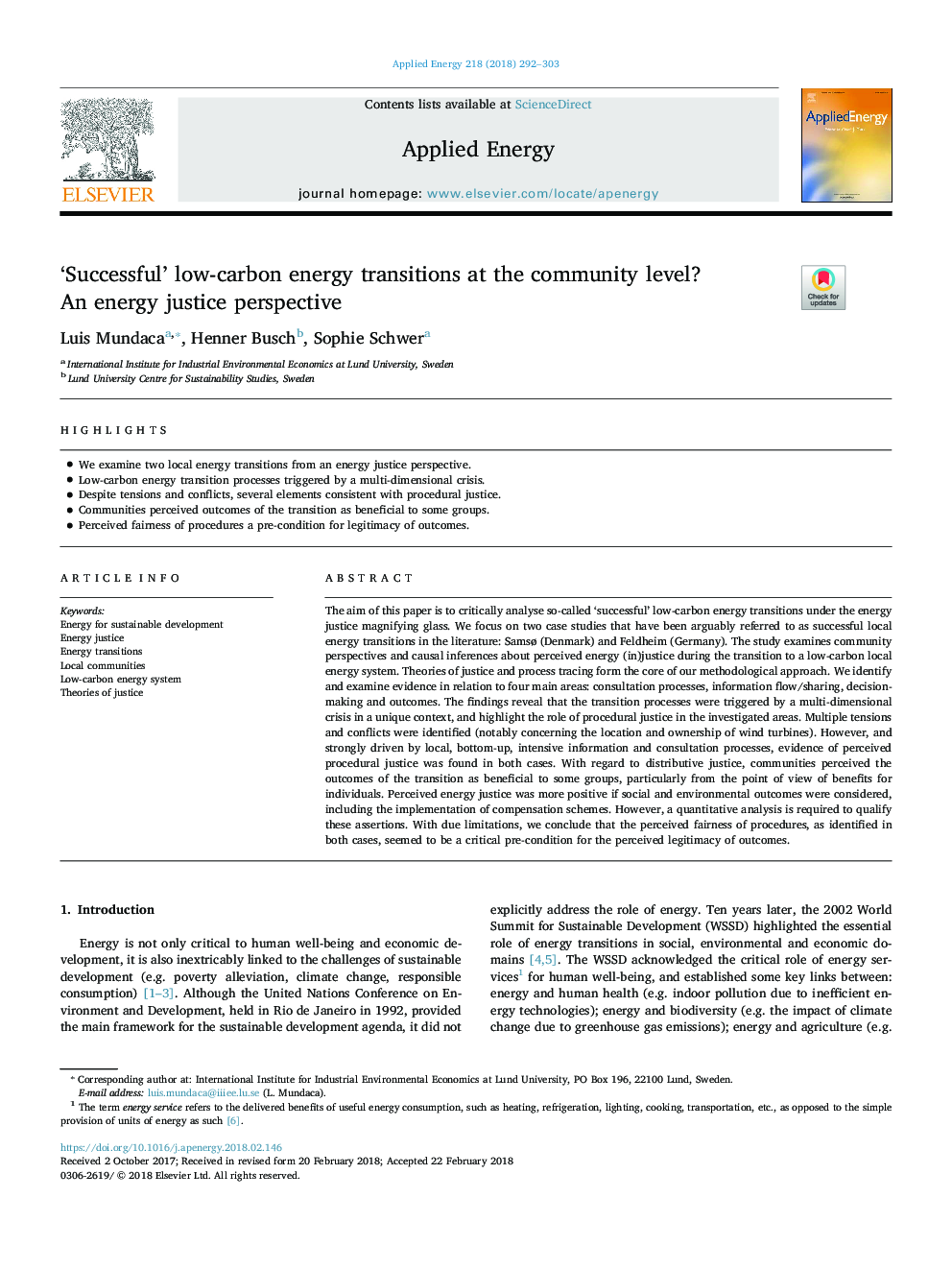| Article ID | Journal | Published Year | Pages | File Type |
|---|---|---|---|---|
| 6680472 | Applied Energy | 2018 | 12 Pages |
Abstract
The aim of this paper is to critically analyse so-called 'successful' low-carbon energy transitions under the energy justice magnifying glass. We focus on two case studies that have been arguably referred to as successful local energy transitions in the literature: Samsø (Denmark) and Feldheim (Germany). The study examines community perspectives and causal inferences about perceived energy (in)justice during the transition to a low-carbon local energy system. Theories of justice and process tracing form the core of our methodological approach. We identify and examine evidence in relation to four main areas: consultation processes, information flow/sharing, decision-making and outcomes. The findings reveal that the transition processes were triggered by a multi-dimensional crisis in a unique context, and highlight the role of procedural justice in the investigated areas. Multiple tensions and conflicts were identified (notably concerning the location and ownership of wind turbines). However, and strongly driven by local, bottom-up, intensive information and consultation processes, evidence of perceived procedural justice was found in both cases. With regard to distributive justice, communities perceived the outcomes of the transition as beneficial to some groups, particularly from the point of view of benefits for individuals. Perceived energy justice was more positive if social and environmental outcomes were considered, including the implementation of compensation schemes. However, a quantitative analysis is required to qualify these assertions. With due limitations, we conclude that the perceived fairness of procedures, as identified in both cases, seemed to be a critical pre-condition for the perceived legitimacy of outcomes.
Related Topics
Physical Sciences and Engineering
Energy
Energy Engineering and Power Technology
Authors
Luis Mundaca, Henner Busch, Sophie Schwer,
